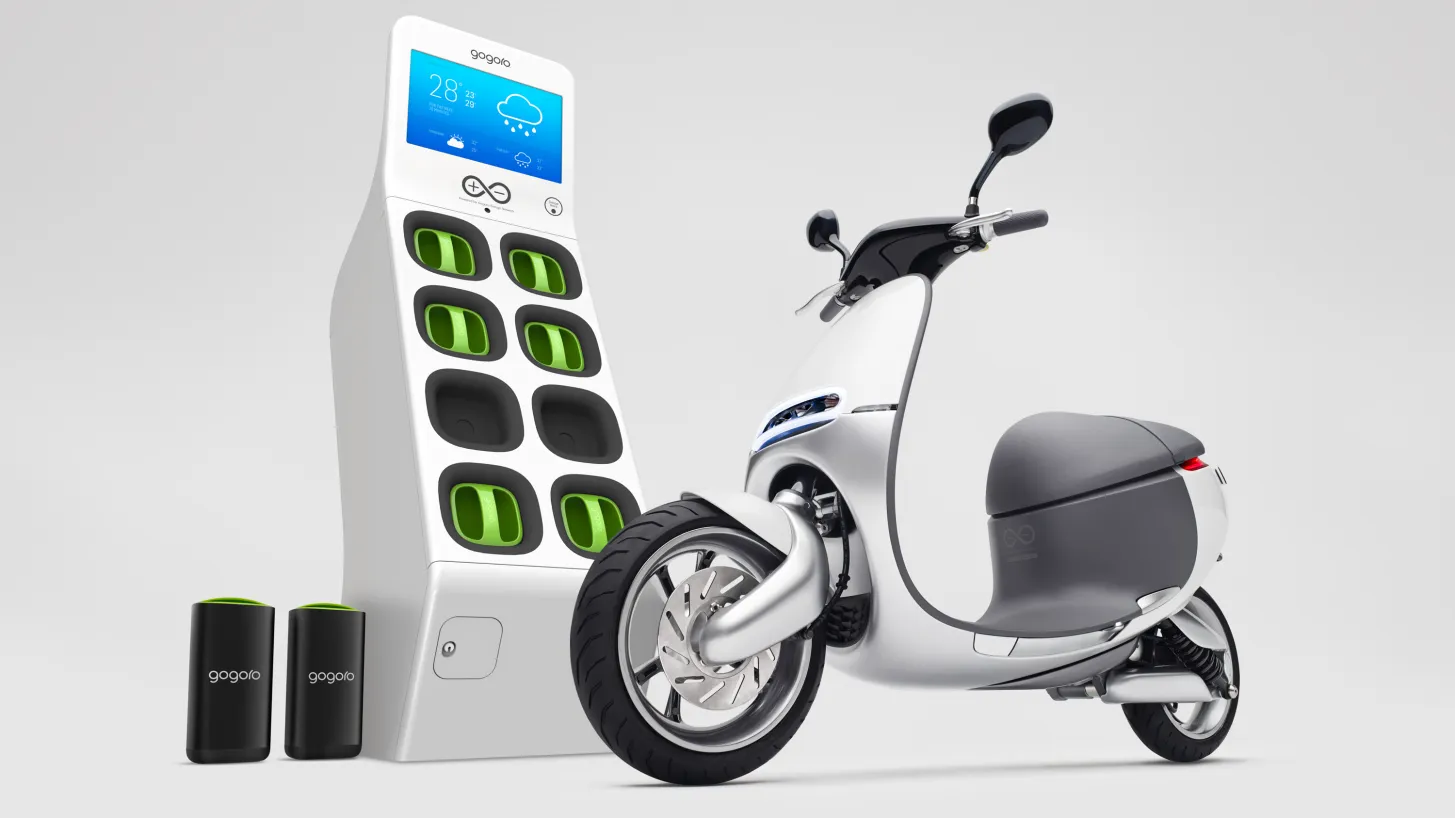In a recent article published by MIT Technology Review, Gogoro, the innovative electric scooter company, has been highlighted as one of the “15 Climate Tech Companies to Watch.”
The renowned publication likened Gogoro to a “reverse Tesla,” acknowledging the company’s groundbreaking approach to revolutionizing the electric vehicle industry.
Gogoro has made a significant impact on the electric scooter market by introducing a smart battery-swapping network.
Unlike Tesla, which primarily focuses on selling electric cars, Gogoro strategically sells its scooters to drive demand for its extensive network of battery-swapping stations.
The company is involved in both scooter and battery manufacturing, with its high-quality batteries being utilized by renowned brands such as Yamaha and Suzuki.
At present, Gogoro boasts an impressive network of 13,000 smart battery-swapping stations spread across nine countries.
This network facilitates approximately 400,000 daily battery swaps, making it one of the largest and most efficient battery-swapping systems globally.
One of the standout features of Gogoro’s service is its user base, which has already exceeded 550,000 riders in Taiwan alone, and it continues to grow.
For a subscription fee starting at just $20 per month, Gogoro customers can exchange their scooter batteries as frequently as they require, providing them with unmatched convenience and affordability.
Gogoro, previously known for its plans of international expansion as a SPAC company, encountered some initial challenges in realizing these ambitions.

Gogoro’s Global Expansion and Transformation: Overcoming Key Challenges
However, recent developments indicate that the company is poised for a significant transformation and expansion on a global scale.
The key challenges in expanding internationally have revolved around pricing competitiveness, securing government subsidies, and establishing strong local partnerships.
Gogoro has undertaken extensive preparation efforts to overcome these hurdles and is making remarkable progress.
Notably, the company has successfully secured substantial subsidies from the government of Maharashtra, India, amounting to a staggering $1.5 billion over an eight-year period.
Gogoro is set to commence local manufacturing of swapping stations and batteries in India, which is expected to reduce costs by 20-30%.
Combined with the government subsidies, this move promises to have a significant impact on the overall cost of building the battery-swapping network and manufacturing scooters.
Gogoro plans to introduce price-competitive scooters manufactured locally in India in Q4 of 2023, with additional products targeting various markets in the pipeline.
These offerings are designed to appeal to both cost-conscious B2B companies and consumers, catering to a wide range of preferences. Furthermore, high-end products are also in development for less price-sensitive consumers.
The initial focus in India is on the B2B sector for last-mile deliveries, a massive market with millions of scooters.

Gogoro’s Battery-Swappable Scooter Network: High-Profile Partnerships and Growth Plans
Gogoro, a prominent player in the electric scooter market, is gearing up for a significant international expansion. Here’s an overview of their strategic plans and partnerships as they aim to make waves in the electric mobility industry:
- Initial Focus on Select Markets: Gogoro’s strategy involves initially targeting select markets where they plan to sell tens of thousands of price-competitive electric scooters. These scooters are designed to leverage the existing demand for eco-friendly transportation solutions.
- Battery-Swapping Network Expansion: Central to Gogoro’s success is their innovative battery-swapping network. They intend to expand and strengthen this network as they enter new markets, ensuring convenient access to battery swapping for their customers.
- Strategic Partnerships: Gogoro has forged high-profile partnerships to facilitate their global expansion. These partnerships not only provide valuable support but also help create a more robust ecosystem for electric mobility.
- Transition to Consumer Sales: While initially focusing on fleet sales, Gogoro has plans to transition into direct consumer sales in the future. This transition marks a pivotal step in their global growth strategy, enabling them to reach a wider audience.
- Collaboration with Partner Brands: Gogoro is actively collaborating with partner brands interested in launching their own battery-swappable electric scooters. This strategic move not only stimulates demand but also expands the battery-swapping network further, creating a win-win situation for all parties involved.
- Global Market Entry: Gogoro’s partnerships in various countries, such as the Philippines and South Korea, are gaining momentum. With strong alliances with companies like Globe and BikeBank, they are set to make their public debut in these markets, expected in Q4 of 2023.
- Overcoming Pricing and Subsidy Challenges: One of the significant hurdles Gogoro has faced in international expansion has been pricing and securing subsidies. However, the impending launch of their product lineup in India in Q4 signals a promising trajectory. They are making strides to address these challenges and establish a strong presence in new markets.
- Investor Expectations: Investors are eagerly anticipating Gogoro’s Q3 investor call, where they hope to gain more insights into the company’s substantial 2024 forecasts. This reflects the growing excitement surrounding Gogoro’s future prospects.
Gogoro’s Impressive Market Dominance and Expansion Potential in Taiwan’s EV Sector
In its home market of Taiwan, Gogoro has achieved an impressive 73.8% market share in the EV sector (rising to over 80% when including PBGN partners).
While price wars among internal combustion engine (ICE) manufacturers have impacted overall EV sales in Taiwan, Gogoro’s market share remains unaffected.
The government’s ambitious goal to increase EV usage from 12% in 2023 to 35% in 2030, eventually reaching 100% by 2040, strongly supports Gogoro’s continued growth.
Despite its remarkable success and potential for expansion, Gogoro’s market capitalization stands at just $620 million, indicating that its international expansion prospects may not yet be fully priced in.
As with any investment opportunity, timing is crucial, but according to MIT Technology Review, keeping a close eye on Gogoro is advisable.
The sustainability megatrend aligns perfectly with Gogoro’s business model, offering the company significant growth opportunities in new markets.
Gogoro’s innovative approach to electric mobility and its dedication to environmental sustainability make it a noteworthy player in the climate tech landscape, and its future expansion endeavors are certainly worth monitoring closely.

